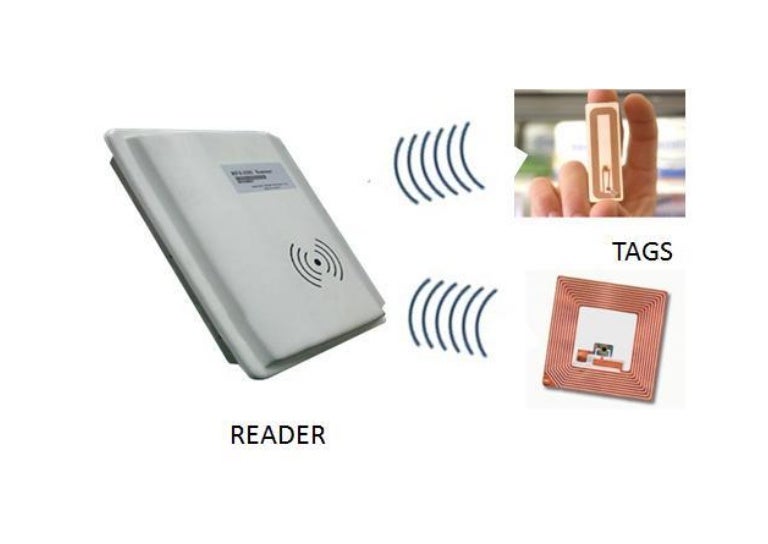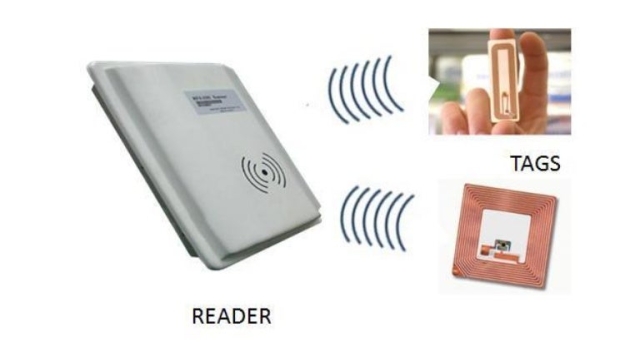RFID technology, short for Radio-Frequency Identification, is revolutionizing the way we interact with everyday objects. This innovative technology uses radio waves to wirelessly transmit data between a tag or label and a reader, enabling seamless and efficient identification and tracking. With its increasing prevalence in various industries, from supply chains to retail and healthcare, RFID is unlocking a future where everything is connected and accessible with a simple scan.
The power of RFID lies in its ability to provide accurate and real-time information. By attaching an RFID tag to an object, whether it be a product, asset, or even a living being, a unique identifier is assigned, allowing it to be easily tracked and managed throughout its lifecycle. Gone are the days of manual counts or barcodes that require line-of-sight scanning; RFID offers a faster and more reliable solution.
The applications of RFID technology are vast and diverse. In retail, RFID enables accurate inventory management, optimizing stock levels and reducing out-of-stock situations. It allows for seamless self-checkout experiences and can even prevent theft through effective anti-shoplifting measures. Hospitals and healthcare facilities are utilizing RFID to enhance patient safety and streamline operations, ensuring medication accuracy and efficiently tracking medical equipment. Supply chains benefit from RFID’s ability to enhance logistics and supply chain management, improving visibility and reducing errors in the movement of goods.
As we delve deeper into the possibilities of RFID technology, it becomes clear that the potential for its integration is virtually limitless. From creating smart homes where everyday objects automatically adjust to our preferences, to enhancing security measures and streamlining access control, RFID is opening doors to a more connected and efficient future. With its ability to bridge the physical and digital realms, RFID technology is set to shape industries and transform the way we live and interact with our surroundings.

In this article, we will explore the inner workings of RFID technology, its benefits and challenges, as well as the exciting applications that are reshaping our world. Join us as we unlock the future and unleash the true power of RFID technology.
1. How RFID Technology Works
RFID technology, or Radio Frequency Identification, is a revolutionary system that uses radio waves to transfer data wirelessly. It enables the identification and tracking of objects or living things equipped with RFID tags or labels. These tiny tags consist of a microchip and an antenna, which communicate with an RFID reader through electromagnetic fields.
Once an RFID reader emits a radio signal, it energizes the RFID tag within its range. This energization powers the microchip, allowing it to transmit the stored information back to the reader. The reader then captures this data and processes it according to the specific application or use case.
Unlike traditional barcode technology, RFID does not require direct line-of-sight or physical contact between the reader and the tag. This allows for faster and more efficient identification and tracking, even in challenging environments. Additionally, multiple RFID tags can be read simultaneously, further enhancing the technology’s capabilities.
The use of RFID technology spans various sectors and industries. It is commonly employed in supply chain management, inventory control, access control systems, and even in electronic toll collection. With its increasing potential, RFID technology is becoming an integral part of our daily lives, unlocking a myriad of possibilities for the future.
2. Applications of RFID Technology
RFID technology has revolutionized numerous industries, enabling a wide range of applications that were previously unimaginable. Here are three key areas where RFID technology is making a significant impact:
Supply Chain Management:
RFID technology has greatly enhanced supply chain management processes. By attaching RFID tags to products and shipments, companies can accurately track and monitor inventory levels in real-time. This enables efficient inventory management, reduces errors, and eliminates the need for manual tracking. With RFID technology, businesses can streamline their supply chain operations, improving overall productivity and customer satisfaction.Retail and Inventory Management:
In the retail industry, RFID technology has proven to be a game-changer for inventory management. Using RFID tags on individual items, retailers can quickly and accurately track their stock levels. This allows for easier stock replenishment, reduces instances of out-of-stock items, and automates the checkout process. By leveraging RFID technology, retailers can optimize their inventory, minimize losses due to theft or spoilage, and enhance the overall shopping experience for customers.Asset Tracking and Security:
Another significant application of RFID technology is in asset tracking and security. With RFID tags embedded in assets such as equipment, vehicles, and even pets, it becomes easier to monitor their movements and locations. This is particularly beneficial for industries such as logistics, construction, and healthcare, where valuable assets need to be tracked and secured. RFID technology provides an efficient and reliable solution for asset tracking, reducing the risk of loss or theft and improving overall security measures.
RFID software Malta
These are just a few examples of how RFID technology is being utilized in various sectors. As the technology continues to evolve, we can expect even more innovative applications to emerge, unlocking the full potential of RFID in shaping the future.
3. Benefits and Challenges of RFID Technology
RFID technology offers numerous benefits that have the potential to revolutionize various industries. Firstly, one of the key advantages of RFID is its ability to improve inventory management. With RFID tags, businesses can accurately track and monitor their assets in real-time, leading to increased efficiency and reduced costs in supply chain operations.
Secondly, RFID technology helps enhance security and prevent theft. By integrating RFID tags into products, companies can implement stringent security measures, ensuring that only authorized personnel can access certain areas or items. This level of control minimizes the risk of theft and helps protect valuable assets.
However, like any technology, RFID also poses certain challenges. One of the main concerns is privacy. As RFID tags can store sensitive information, there is a risk of unauthorized individuals obtaining access to personal data. It is crucial for organizations to implement robust privacy measures and ensure strict control over data collection and usage to address these concerns.
Another challenge is the initial cost of implementing RFID systems. While the long-term benefits are significant, the upfront investment can be substantial for small businesses. Additionally, integrating RFID technology into existing operations may require infrastructure upgrades and staff training, further adding to the overall cost and complexity.
In conclusion, RFID technology offers immense benefits such as improved inventory management and enhanced security. However, challenges such as privacy concerns and initial costs need to be carefully addressed to fully maximize the potential of this technology. By addressing these challenges, businesses can unlock the future possibilities that RFID technology can provide.


